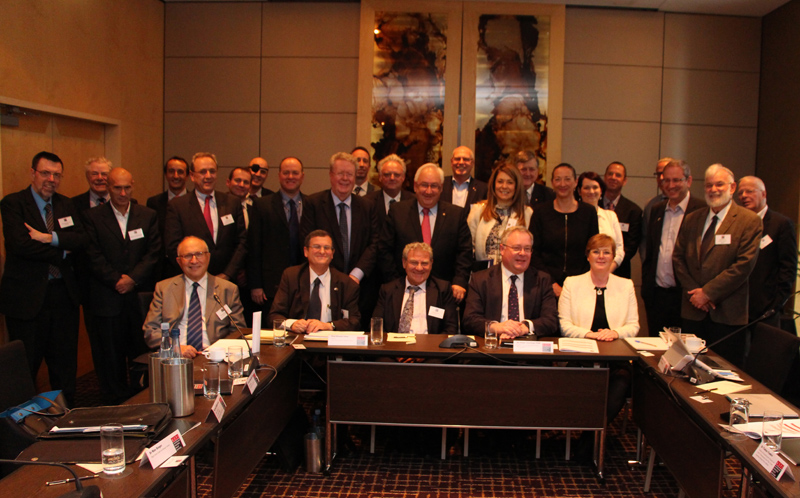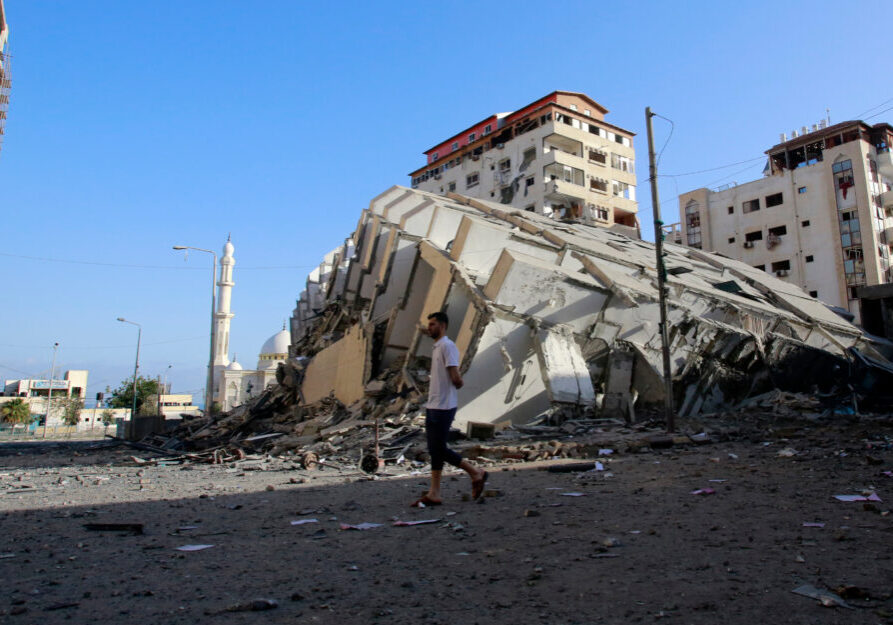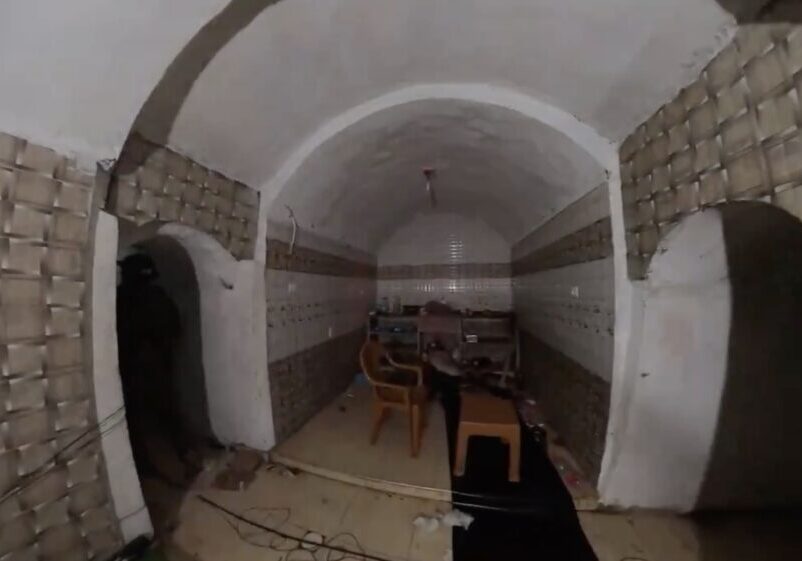Australia/Israel Review
Be’er Sheva in Bondi
Nov 23, 2016 | Ahron Shapiro

Ahron Shapiro
Defence cooperation between Australian and Israel has taken a major step forward with the release late last month of a joint report by the Australian Strategic Policy Institute (ASPI) and the Israel-based Begin-Sadat Centre for Strategic Studies (BESA).
The report, “The Wattle and the Olive”, was co-written by ASPI Senior Analyst Anthony Bergin and BESA’s Director Efraim Inbar and released at the second annual Be’er Sheva Dialogue, held this year in Sydney on November 1.
Inspired by the historic charge of Australia’s Light Horse Brigade at Be’er Sheva in 1917, the Be’er Sheva Dialogue brings together analysts from ASPI and BESA along with other top Australian and Israeli strategic thinkers, retired generals, diplomats and other Australian and Israeli government and opposition officials to liaise on matters of common interest and look for ways to expand ties in mutually beneficial ways.
With anticipation and excitement building over next year’s 100th anniversary celebrations, this year’s Be’er Sheva Dialogue sought to add substance to the Australian-Israel relationship – a relationship that the report described as “underachieving” to date and falling short of its potential.
“There’s really no country in Middle East whose interests are more closely aligned to Australia than Israel,” observed Bergin, writing in ASPI’s Strategist blog announcing the release of the report on October 31. “In particular it’s a bulwark against violent extremism in the region. Unfortunately in Australia there’s a tendency to see Israel purely through the lens of the Palestinian issue and the peace process. The ASPI-BESA study wanted to get away from that prism.”
The report identified a number of spheres of common interest between Israel and Australia.
In the Middle East these interests include preventing nuclear proliferation, combating terrorism and violent Islamist extremism, a preference for peaceful, liberal, democratic change and economic progress, limiting Iran’s support for terrorist groups and its nuclear potential, ensuring the security of vital trade and energy flows, support for a two-state outcome between Israel and the Palestinians, and maintaining the US alliance.
The report also offered recommendations in certain areas of common interest where Bergin and Inbar indicated action was needed.
For example, in Asia, the report recommended Australia act as a go-between for discrete, three-way “track two” parlays together with Indonesia and Israel, “to share strategic assessments especially as they relate to violent Islamist extremism.”
However, the bulk of the report’s recommendations dealt with defence cooperation. These included:
- Developing a strategic dialogue involving Australian and Israeli senior uniformed and civilian defence personnel. The dialogue should look at strategic thinking, military-to-military cooperation, US alliance issues, cybersecurity and industry cooperation. (The report noted that Israel already has such dialogues with the US, the UK, France, Germany, India and Canada.)
- Holding an annual ‘2+2′ strategic dialogue involving the foreign and defence ministers from both countries.
- The creation of uniformed defence attaché positions by both countries.
- Military staff exchanges at each other’s defence colleges at least every two years.
- Regular exchanges between Australia’s Defence Science and Technology Group and Israel’s Mafat (the Administration for the Development of Weapons and Technological Infrastructure).
- Regular meetings between Australian and Israeli defence industry end-users and operators.
- Periodic information exchanges on a variety of issues related to defence and homeland security, including counterterrorism, intelligence cooperation, cybersecurity. Regarding homeland security: dialogues on disaster response planning, policing and development of programs to fight radicalisation within Muslim communities.
Beyond the defence sphere, the report lauded current Australian government initiatives to collaborate with Israel on technology and innovation and called for an expansion of these activities, including the encouragement of academic exchanges between Australian and Israeli universities.
There was also a call for co-development of water-saving technologies. “This is an obvious area for cooperation in international development programs in the Asia-Pacific and Africa, one that will support Australian foreign policy objectives,” Bergin wrote.
The Sydney conference covered a wide range of timely and forward-thinking topics: “The global strategic environment”; “Middle East security in 2030”; “The future of the Australian-Israel relationship”; “Cyber security and ‘asymmetric’ threats”; and “new challenges in warfare.”
This year’s Be’er Sheva Dialogue follows the success of the inaugural forum that was held early last year on the campus of Israel’s Bar-Ilan University, home to BESA.
One of the major developments impacting defence strategy since that time has been the Iranian nuclear deal, and one of the hot topics during the discussion on both the current global strategic environment and that of the future was looking at the ramifications of the deal on the Middle East today and tomorrow – and how to address the threat of an emboldened Iran poised on the nuclear threshold.
In addition, the Syria situation continued to weigh on the minds of the strategists, along with the fight against ISIS and the radical Islamist ideology that fuels it and similar movements, and how to deal with the threat of returning jihadists and the spectre of global terror.
In the afternoon session, cyber security dominated the discussion – much more so than in the first Dialogue, and it became apparent that, for both Australia and Israel, the ever more connected world is demanding their national security agencies stay on the fast track for managing the risks of cyber-warfare that can cripple infrastructure and disrupt economies in an instant.
At this year’s event’s Welcome Reception in Sydney, it was noted with great satisfaction that one of the recommendations in the report – that a sitting Israeli Prime Minister should visit Australia – is already expected to be fulfilled within the next three months, with the news of Binyamin Netanyahu’s scheduled visit as part of an Asia-Pacific diplomatic intiative.
Next year, the Dialogue will shift back to Israel, to coincide with other planned activities to commemorate the ANZAC centennial in the region.
The challenge now, concurred Inbar and Bergin in their remarks in Sydney, is to take the Dialogue beyond constructive rhetoric and ensure that Jerusalem and Canberra act upon and fully implement more of the report’s recommendations in time for the highly anticipated third Dialogue in a year’s time.
The full report, “The Wattle and the Olive: A new chapter in Australia and Israel working together” by Anthony Bergin and Efraim Inbar can be downloaded from the ASPI website, www.aspi.org.au, or directly via tinyurl.com/aspirep.
Tags: Australasia, Indonesia






